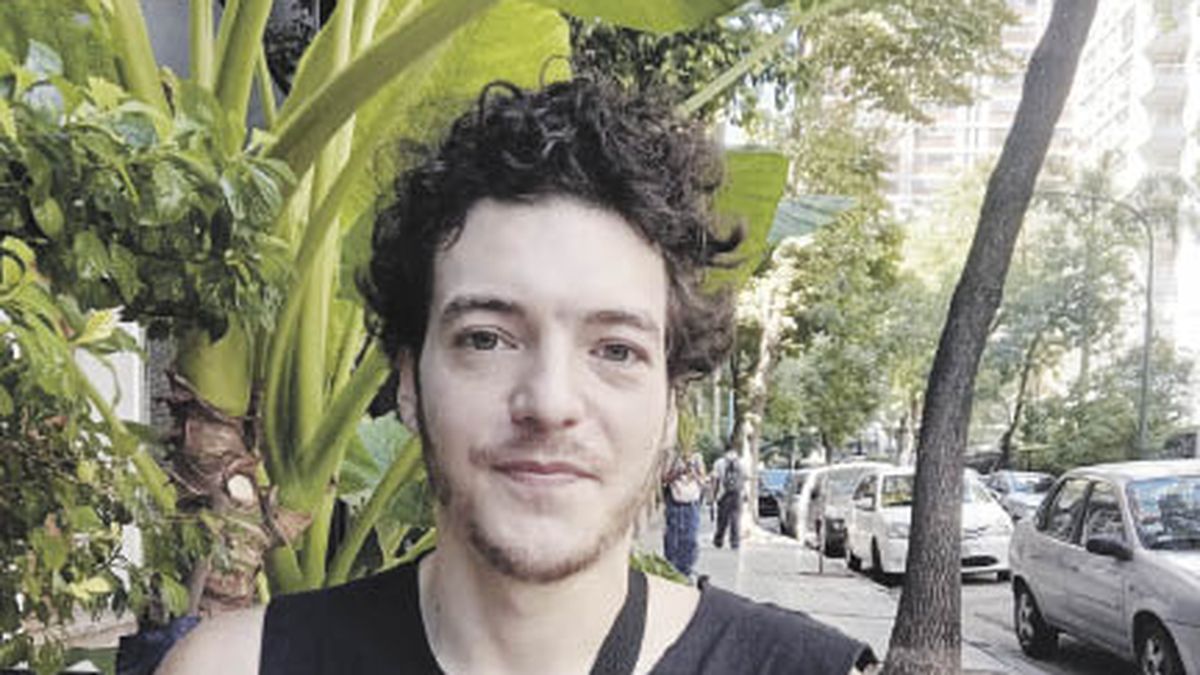Argentina, in 2272, has been reduced by half and its capital is in Antarctica. In the Caribbean Pampas lives a mutant dengue child, a monstrous humanoid mosquito protagonist of “The Childhood of the World” (Anagrama), a novel by Michel Nieva, an Argentine who lives in New York, where he teaches at NYU. Because of his novels, Granta highlighted him as one of the best young storytellers in Spanish. We talk with him.
Journalist: Is “The World’s Childhood” a political fable like “1984” and “Brave New World?
Michael Snow: It could be interpreted like this, they are both sides. “1984” the liberal dystopia with the pressure of the State. And “A happy world” critique of capitalism in subjectivation through consumption, which is closer to my novel. A symptom of current capitalism is in the narratives that corporations use for their technologies and merchandise. They appropriate the aesthetics of science fiction to narrate their products and fetishize them. Elon Musk takes the metaverse of Neal Stephenson’s novel “Snow crash”, for his space companies the costumes of the Daft Punk band, from the movie “Interstellar” and from Stanley Robinson’s “Martian Trilogies”. Today, either you participate in the aestheticization of corporate products or you take a critical view of this appropriation of science fiction, and you try to prevent it.
Q.: Does cyberpunk science fiction suggest that literature forgot its political function?
MN: The cyberpunk reveals that all construction of the future is political. The science fiction of the “golden age” spoke of imperial constructions and interplanetary states, the cyberpunk believes that with neoliberalism the process of general precariousness is accelerated. From there, I thought of a future that would put contemporary problems in the South under discussion.
Q.: How did the humanoid mosquito, carrier of dengue, the protagonist of your novel, emerge from being humiliated to exterminator?
MN: Dengue is a tropical disease that, due to global warming, has spread to geographies that do not have these ecosystems. It is a disease that, due to the coronavirus, was made invisible because it affects marginalized populations. The genomic structure of the coronavirus is not very different from dengue or Ebola, but since the coronavirus affected rich countries, it had a vaccine in record time, while the others continue to kill people in America and Africa.
Q.: Did you think about the future of the human from something non-human?
MN: Harold Bloom in his “Shakespeare” argues that the English playwright is the creator of the story of the human and that the modern novel is the modulation of the archetypes that he created. But, when Shakespeare emerges at the same time the conquest of America begins, the great process of dehumanizing his territory, violence that continues throughout the history of Latin America. The human in European literature turns its back on the colonial phenomenon. Science fiction offers the possibility of exploring this history of violence and dehumanization from the non-human. In my novel, violence appears as a virus, which, not being alive, repeats its violence anachronistically and with the same structure. The rugby players who say “we’ll take this black as a trophy” repeat a scene from the dictatorship or the Conquest of the Desert. Scene that does not have time because it occurs in the same way. The modern novel recounts the adventures of the self and the family, the environment is an immobile decoration in the background. What happens when that scenery is shaken and the characters are absorbed? I considered that non-literary narrative artifacts allow us to think about large dimensions of planetary time: maps, video games, natural science museums, the algorithmic structure of finance, viruses, I started from there, and that is in my novel.
Q.: Why does the story have permanently provocative language?
MN: Art has to interrupt the logic of the immediacy of the present through which one passes without critical capacity. I am interested in introducing elements of everyday life into a distorted universe, into something that seems like absolute delirium. The most realistic elements of the novel are in the video game “Cristianos vs. Indians”, which is a forgery of another video game. Science fiction has the ability to distort the present so that one can see contemporary events as new. Agamben considers that the contemporary writer is the one who allows us to see his own time as if it were new. Science fiction at some point allows that.
Q.: Is that why you mix the fantastic literature of Borges with the science fiction of Dick?
MN: Deleuze, who is not my favorite, plagiarized Borges by arguing that metaphysics is a subgenre of science fiction. Borges’s metaphysical or esoteric games, Philip K. Dick turns them into contemporary political problems. In it, the distinction between the original and the copy becomes a political tension to legitimize what is a commodity. Dick installs philosophy in contemporary problems, the future of humanity as a species, political systems, something that I tried to experience in this novel. Especially the issue of the great temporalities that have to do with climate change and viruses, and even with “financial viruses”. Science fiction is speculative fiction, and I live in New York where finance is very present. Financial speculation participates in speculative fiction. During the pandemic I would see graphs of deaths and stocks, as if they were both the same, digits on which capital was operating. The algorithmic machine that is capitalism can appropriate any planetary catastrophe, including ending humanity in order to turn it into a marketable phenomenon, into an economic operation. It is easier to imagine the end of humanity than the end of capitalism, Mark Fisher has said, and contemporary capitalism is already imagining its future when humanity ends, terraforming other planets, that too is in the novel.
Q.: What are you up to now?
MN: In a book of essays, “Capitalist Science Fiction”, which is a bit of a response to Mark Fisher’s “Capitalist Realism”. And with the continuation of the billionaire of “The childhood of the world” and his interplanetary ventures.
Source: Ambito
I am an author and journalist who has worked in the entertainment industry for over a decade. I currently work as a news editor at a major news website, and my focus is on covering the latest trends in entertainment. I also write occasional pieces for other outlets, and have authored two books about the entertainment industry.




